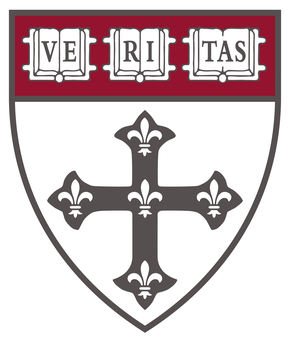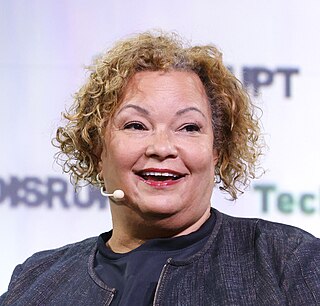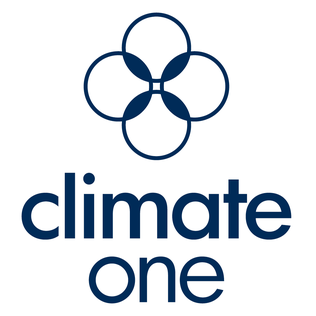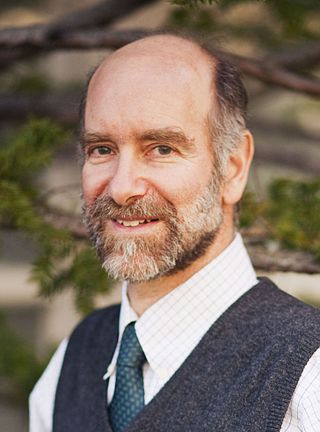Related Research Articles

The Natural Resources Defense Council (NRDC) is a United States-based 501(c)(3) non-profit international environmental advocacy group, with its headquarters in New York City and offices in Washington D.C., San Francisco, Los Angeles, Chicago, Bozeman, India, and Beijing. The group was founded in 1970 in opposition to a hydro-electric power power plant in New York.

The Environmental Protection Agency (EPA) is an independent agency of the United States government tasked with environmental protection matters. President Richard Nixon proposed the establishment of EPA on July 9, 1970; it began operation on December 2, 1970, after Nixon signed an executive order. The order establishing the EPA was ratified by committee hearings in the House and Senate.

The United Nations Conference on Environment and Development (UNCED), also known as the Rio de JaneiroConference or the Earth Summit, was a major United Nations conference held in Rio de Janeiro from 3 to 14 June 1992.

The Harvard T.H. Chan School of Public Health is the public health school of Harvard University, located in the Longwood Medical Area of Boston, Massachusetts. The school grew out of the Harvard-MIT School for Health Officers, the nation's first graduate training program in population health, which was founded in 1913 and then became the Harvard School of Public Health in 1922.

Environmental education (EE) refers to organized efforts to teach how natural environments function, and particularly, how human beings can manage behavior and ecosystems to live sustainably. It is a multi-disciplinary field integrating disciplines such as biology, chemistry, physics, ecology, earth science, atmospheric science, mathematics, and geography.
Lise Van Susteren is an American psychiatrist, commentator, author and environmental activist. She is a general and forensic psychiatrist in Washington, D.C., and an expert on the physical and psychological impacts of climate change.

Lisa Perez Jackson is an American chemical engineer who served as the administrator of the United States Environmental Protection Agency (EPA) from 2009 to 2013. She was the first African American to hold that position.
Sustainability science first emerged in the 1980s and has become a new academic discipline. Similar to agricultural science or health science, it is an applied science defined by the practical problems it addresses. Sustainability science focuses on issues relating to sustainability and sustainable development as core parts of its subject matter. It is "defined by the problems it addresses rather than by the disciplines it employs" and "serves the need for advancing both knowledge and action by creating a dynamic bridge between the two".

James J. McCarthy was a Professor of Biological Oceanography at Harvard and was president of the American Association for the Advancement of Science from February 2008 to February 2009.

The United States Environmental Protection Agency (EPA) was established in July 1970 when the White House and the United States Congress came together due to the public's demand for cleaner natural resources. The purpose of the EPA is to repair the damage done to the environment and to set up new criteria to allow Americans to make a clean environment a reality. The ultimate goal of the EPA is to protect human health and the environment.

Eileen B. Claussen is an American climate and energy policy administrator, diplomat, and lobbyist. She held senior posts at the U.S. Department of State, National Security Council, and Environmental Protection Agency before founding the Pew Center on Global Climate Change in 1998. She then launched the center's successor organization, the Center for Climate and Energy Solutions (C2ES), in 2011, and retired as president of C2ES in 2014.

Climate One is a weekly podcast and radio program, aired on more than 60 public radio stations around the U.S. A special project of The Commonwealth Club of California, Climate One is based in San Francisco, California. Through its podcast, national radio show, and live convenings for thought leaders and concerned members of the public, they create opportunities for dialogue and aim to inspire a more complete understanding the implications of a changing climate on society, energy systems, economy and the natural environment. Founded in 2007 by Greg Dalton, Climate One has brought together over a thousand policymakers, business leaders, scientists, activists, and others to examine the personal and systemic impacts of climate and advance the conversation about a clean energy future.
The Rachel Carson Award is awarded each spring by the National Audubon Society's Women in Conservation to recognize "women whose immense talent, expertise, and energy greatly advance conservation and the environmental movement locally and globally". Honorees are drawn from diverse backgrounds, including the worlds of journalism, academics, business, science, entertainment, philanthropy and law.

Robert Perciasepe is an American former government official who currently serves as a senior adviser to McKinsey and Company and the nonprofit Center for Climate and Energy Solutions, following his role as President of the organization. He served as the Deputy Administrator and Acting Administrator of the U.S. Environmental Protection Agency during the administration of Barack Obama.

Regina McCarthy is an American air quality expert who served as the first White House national climate advisor from 2021 to 2022. She previously served as the thirteenth Administrator of the Environmental Protection Agency from 2013 to 2017.

Protect Our Winters (POW) is a 501(c)(3) nonprofit organisation that focuses on law reform for environmental issues and civic engagement campaigns such as sharing news from climate scientists. The organization's headquarters are located in Boulder, Colorado, United States. According to the nonprofit's policy webpage, POW focuses its efforts on legislation regarding carbon pricing, solar, public lands, and transportation. POW receives financial support from The North Face, Patagonia and CLIF Bar and many other corporate companies, partners, foundations, individuals and resorts. The current executive director of POW in interim is Torrey Udall.

Kari C. Nadeau is the Chair of the Department of Environmental Health at Harvard School of Public Health and John Rock Professor of Climate and Population Studies. She is adjunct professor at Stanford University in the Department of Pediatrics and the co-chair of the Medical Societies Consortium for Climate Change and Health. She practices Allergy, Asthma, Immunology in children and adults. She has published over 400+ papers, many in the field of climate change and health. Her team focuses on quantifying health outcomes of solutions as they pertain climate change mitigation and adaptation at the local, regional, country, and global levels. Dr. Nadeau, with a team of individuals and patients and families, has been able to help major progress and impact in the clinical fields of immunology, infection, asthma, and allergy. Dr. Nadeau is a member of the National Academy of Medicine and the U.S. EPA Children’s Health Protection Committee.

Michelle Ann Williams is a Jamaican-American epidemiologist, public health scientist, and educator who has served as the dean of the Harvard T. H. Chan School of Public Health since 2016.

Jonathan Alan Patz is an American academic who is a professor and John P. Holton Chair of Health and the Environment at the University of Wisconsin-Madison, where he serves as Director of the Global Health Institute. Patz also holds appointments in the Nelson Institute for Environmental Studies and the Department of Population Health Sciences at the UW-Madison. He serves on the executive committee of the Tyler Prize for Environmental Achievement and was elected in 2019 to the National Academy of Medicine.

The right to a healthy environment or the right to a sustainable and healthy environment is a human right advocated by human rights organizations and environmental organizations to protect the ecological systems that provide human health. The right was acknowledged by the United Nations Human Rights Council during its 48th session in October 2021 in HRC/RES/48/13 and subsequently by the United Nations General Assembly on July 28, 2022 in A/RES/76/300. The right is often the basis for human rights defense by environmental defenders, such as land defenders, water protectors and indigenous rights activists.
References
- ↑ "Center for Health and the Global Environment at Harvard Medical School". visualvisitor.com. Retrieved June 18, 2022.
- ↑ "Gina McCarthy, former U.S. EPA Administrator, launches C-CHANGE at Harvard T.H. Chan School of Public Health". Harvard T.H. Chan School of Public Health. May 30, 2018. Retrieved May 31, 2018.
- ↑ McCarthy, Gina (May 31, 2018). "It's Time To Take Climate Change Personally". WBUR . Retrieved May 31, 2018.
- ↑ Banks, Bev (January 17, 2020). "Gina McCarthy, John Kerry tapped for Harvard climate board". E&E News . Retrieved January 20, 2021.
- ↑ Wernick, Adam (June 17, 2018). "Former EPA chief Gina McCarthy launches Center for Climate, Health and the Global Environment at Harvard". The World . Retrieved June 18, 2022.